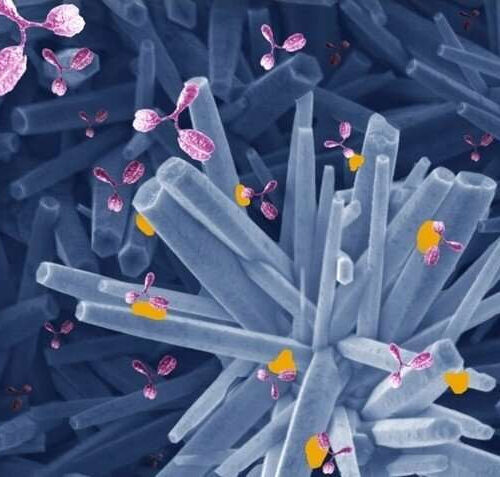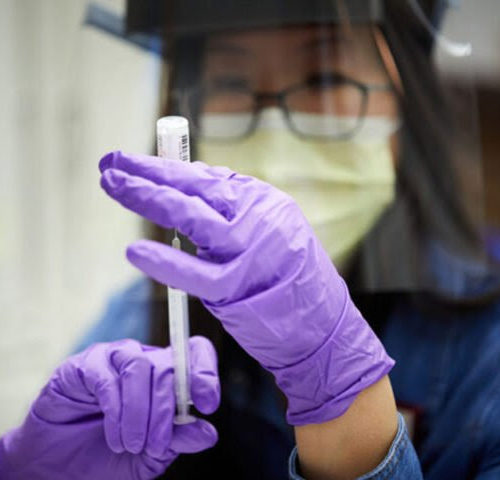FEBRUARY 23RD, 2023 CONN HASTINGS MEDICINE, PUBLIC HEALTH Researchers at the Garvan Institute of Medical Research in Australia have developed a new generation of antibodies to treat COVID-19. So far, the antibodies have been shown to neutralize several of the viral variants behind COVID-19, and the researchers hope that they will form an effective treatment for at-risk patients. Previously developed...
Tag: <span>COVID-19 antibodies</span>
Novel device detects COVID-19 antibodies in five minutes
by Ricardo Muniz, FAPESP Illustration of the structure of zinc oxide modified with the spike protein and its interaction with antibodies in the sample. The novel method detects COVID-19 antibodies in five minutes. Credit: Karin Regina Leite de Oliveira/DK design Rapid, cheap and accurate tests continue to be essential for epidemiological surveillance and for health...
New evidence COVID-19 antibodies, vaccines less effective against variants
Worrisome new coronavirus variants can evade antibodies that neutralize original virus. New research at Washington University School of Medicine in St. Louis indicates that three new, fast-spreading variants of the virus that causes COVID-19 can evade antibodies that work against the original form of the virus that sparked the pandemic. With few exceptions, whether such...
COVID-19 antibodies in donated plasma decline within first months after symptom onset
AMERICAN SOCIETY OF HEMATOLOGY Although there is still uncertainty about the clinical benefits and role of convalescent plasma to treat COVID-19, new research suggests that the earlier plasma is collected after the donor’s recovery from COVID-19, the better, as antibodies start to disappear after three months of symptom onset. The results, which authors say may also have...



